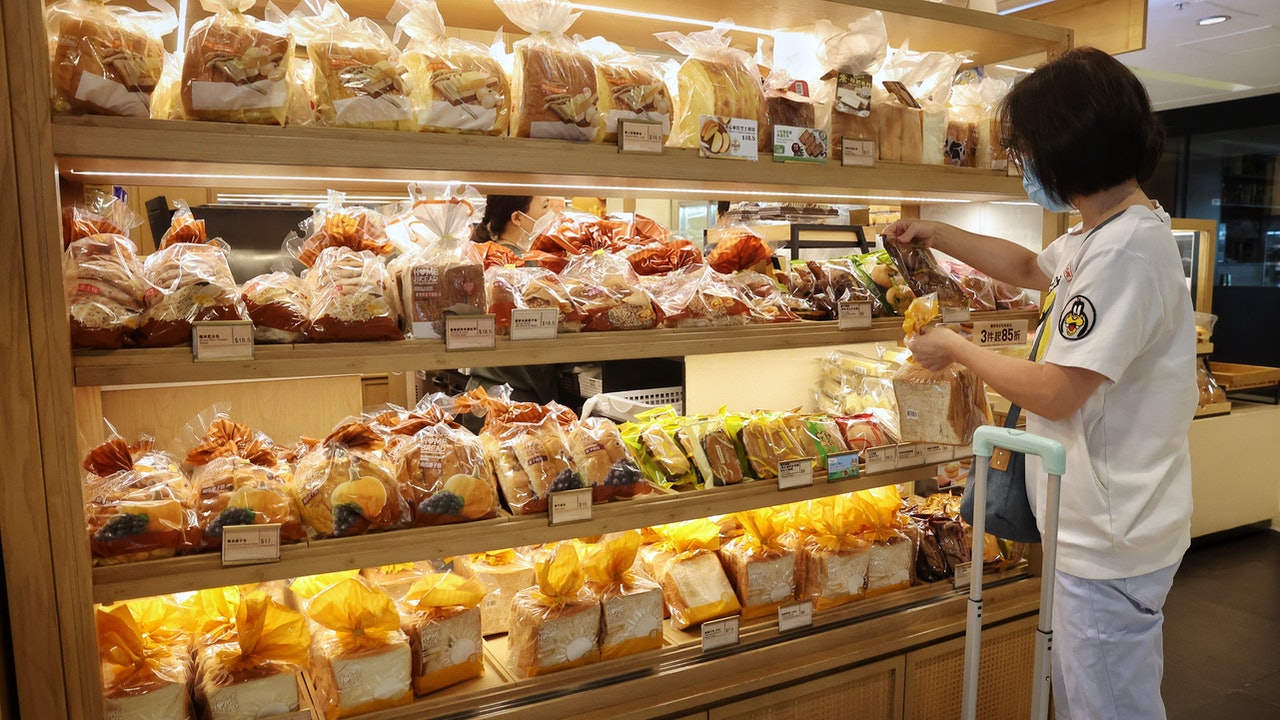Sandwiches and toasts are the breakfast choices of many people, and Chinese buns are indispensable materials.
The Consumer Council tested 28 samples of prepackaged white square buns and wheat square buns. All the samples were free of the four mycotoxins and were safe to eat.
However, the Consumer Council found that the declared nutrient values of nearly half of the samples did not meet the requirements of the relevant guidelines. Among them, pure white square buns at 85°C detected 90.7% higher levels of saturated fatty acids than the declared values.
In addition, the sample with the highest total fat content in all the samples was Don Don Donki's square bun, which was nearly 10 times different from the sample simplylife with the lowest total fat content.
In terms of scoring, the most expensive sample per slice is the Shokupan specialty store in Bangben, which sells for 26 yuan, and has a score of four points; while the cheapest sample is Garden Life Bread, which sells for only 1 yuan per slice, and has a score of 20%. 4.5 points, which is better than the most expensive sample.
The Consumer Council pointed out that although none of the samples in the test were high in sodium, fat or sugar, the overall average sodium content of the samples was higher than that of the non-prepackaged cubes tested four years ago.
The sample with the highest sodium content detected in the test was simplylife original T65 cubes, which already contained 567 mg per 100 grams.
The Consumer Council estimates that the sodium intake from eating two slices of the relevant sample has accounted for more than 20% of the daily intake limit recommended by the World Health Organization for the average adult. Unconsciously, you're consuming more sodium.
In terms of sugar content, the two samples with higher sugar content include Shokupan Specialty Store and Don Don Donki, which detected 8.7 and 9.7 grams of sugar per 100 grams, respectively.
Consuming one piece of the above two samples of square buns will result in 9.1 and 7.0 grams of sugar intake respectively, which is about 26.1% and 20.1% of the upper limit of five-year-old children's intake.
The Consumer Council pointed out that if you put jam containing a lot of added sugar on bread, you will unknowingly take in more free sugars.
Regular excess intake of free sugars increases the risk of overweight and obesity, as well as increases the chance of tooth decay.
The Consumer Council tested 28 samples of prepackaged white square buns and wheat square buns. All the samples were free of the four mycotoxins and were safe to eat.
(Provided by Consumer Council)
In terms of label information, the Consumer Council pointed out that all the samples in this study were prepackaged baked goods, but the packaging of Paper Stone Bakery, simplylife, BreadTalk and Prince Bakery did not have an ingredient list.
In addition, the difference between the declared content of certain nutrients and the test results of nine samples exceeded the regulatory tolerance limit of the guidelines. Among them, the detected amount of saturated fatty acids in pure white square buns at 85°C was 90.7% higher than the declared value, while Shokupan Premium Shokupan The amount of saturated fatty acids detected in specialty stores was also 41.9% higher than the labelled value.
In addition, the dietary fiber labelling value of 85°C, crostini whole-wheat bread and A-1 Bakery peeled wheat square bread were all higher than 6 grams per 100 grams, reaching the definition of "high fiber".
However, the test results showed that the detection amount of the three samples was 63.6%, 59.0% and 41.6% less than the marked value respectively.
(Provided by Consumer Council)
The Consumer Council also stated that the test results showed that whether it is dietary fiber, or the minerals iron, copper, zinc and magnesium, the average content of wheat buns is higher than that of white buns.
The average dietary fiber content of the 14 wheat square bun samples was 4.5 grams per 100 grams, and the average dietary fiber content of the 14 white square bun samples was 2.3 grams, a difference of nearly double.
In terms of minerals, the average iron content per 100 grams of wheat buns is 122% higher than that of white buns.
The Consumer Council reminds the public to try healthier combinations when eating square buns, such as using two slices of wheat square buns, a scrambled egg, a little tomato and lettuce to make an "egg mixed vegetable sandwich" instead of Foods that are higher in sugar and fat, such as cream toast.
In addition, the Consumer Council advises the public to only buy enough bread each time, and not to hoard it, so as to avoid spoilage or mold.
(Provided by Consumer Council)
Consumer Council|Consumer Litigation Fund has helped 42 cases in 10 years to recover more than half of the lawsuits and recovered compensation Consumer Council|About 50% of infant food high-sugar Nitto cheese grains 1.3 packs exceed WHO standards Consumer Council sausage survey|Chef Brand chicken sausage contains 13 times more banned drugs, nearly 90% of sausages are high in sodium Consumer Council|Amika Rinse Hair Mask Allergy Preservative Exceeds Opal, TSUBAKI Contains Banned Spice Complaints involving more than 240,000 yuan Consumer Council received 267 quick test kits complaints 90% of online shopping supermarket prices are related to panic buying

